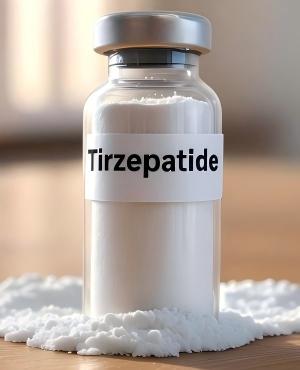Tirzepatide: How It Works & Side Effects

Tirzepatide is a novel dual agonist peptide that targets both the glucagon-like peptide-1 (GLP-1) receptor and the glucose-dependent insulinotropic polypeptide (GIP) receptor. By activating these two pathways simultaneously, it enhances insulin secretion, improves glucose control, and supports significant weight management benefits. This dual mechanism represents a major advancement compared to single-pathway GLP-1 receptor agonists.
The pharmacological action of Tirzepatide is rooted in its ability to mimic the body’s natural incretin hormones. GLP-1 promotes insulin release and reduces glucagon secretion, which lowers blood glucose levels after meals. Meanwhile, GIP improves insulin sensitivity in peripheral tissues and contributes to lipid metabolism. Together, these effects create a synergistic response that supports long-term metabolic health.
Clinical studies have shown that Tirzepatide not only reduces HbA1c levels in individuals with type 2 diabetes but also produces meaningful weight loss outcomes. The weight management effects are thought to result from reduced appetite, delayed gastric emptying, and improved satiety. These combined benefits make Tirzepatide an attractive therapeutic option for patients struggling with obesity and metabolic syndrome.
Like any therapeutic agent, Tirzepatide is associated with potential side effects. The most commonly reported include gastrointestinal issues such as nausea, vomiting, diarrhea, and constipation. These effects are often dose-dependent and may lessen as the body adapts to treatment. Healthcare providers typically start with lower doses and gradually increase them to minimize discomfort.
Other possible side effects may include reduced appetite, fatigue, or mild injection site reactions. In rare cases, pancreatitis or gallbladder complications have been reported, which underscores the importance of careful monitoring by a qualified healthcare professional. As with other incretin-based therapies, patients should be evaluated for any pre-existing risk factors before beginning treatment.
Long-term safety studies are ongoing, but early data suggest that Tirzepatide may also provide cardiovascular benefits. Improvements in blood pressure, lipid profiles, and inflammatory markers have been observed in certain patient groups, which could further expand its clinical applications beyond glucose control and weight management.
